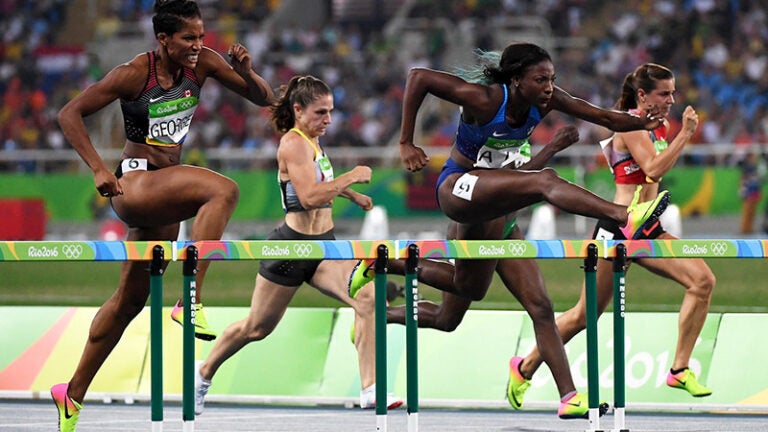
Meet 5 exceptional USC Dornsife Olympic athletes
The University of Southern California has produced more Olympic medalists than any other university in the United States.
The USC Dornsife College of Letters, Arts and Sciences has been home to many of these stars, who raced along USC’s tracks or splashed through its swimming pool while also studying to earn a degree.
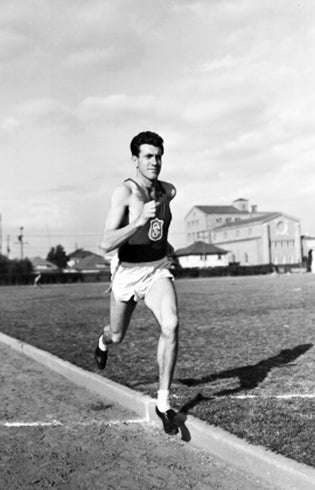
Olympic athlete, POW, man of faith
Immediately after enrolling at USC as a physical education major, Louis Zamperini ’40 began training for the 1936 Berlin Olympics. He placed eighth in the 5,000-meter run. Zamperini’s hopes of a repeat Olympics performance were dashed with the outbreak of World War II.
He joined the United States Air Force as a bombardier. In 1943, his plane crashed into the Pacific Ocean, killing most of the crew. For 47 days, Zamperini and two other survivors floated adrift before washing ashore on the Marshall Islands, where they were taken prisoner by the Imperial Japanese Army.
Zamperini was eventually released and received a hero’s welcome back home in Los Angeles. After struggling with PTSD, Zamperini found relief in Christianity and spent the rest of his life preaching forgiveness. In 1998, he sent a letter to the Japanese prison warden who had tortured him stating he had forgiven him.
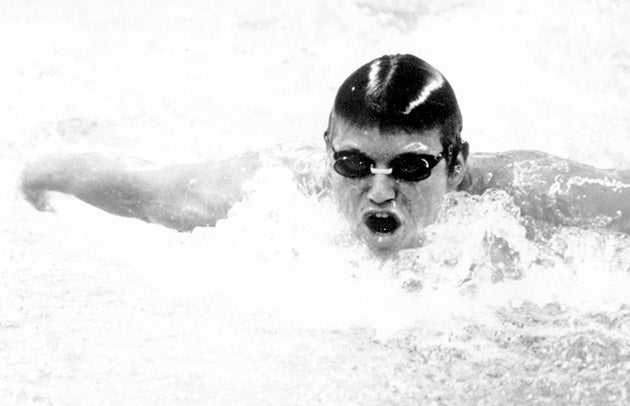
First Deaf American Medalist
At the age of one, Jeff Float ’83, a psychology alumnus, contracted viral meningitis and lost most of his hearing. He learned to read lips and eventually wore a digital hearing aid, but childhood classmates often taunted him for his speech. Float found purpose in the swimming pool, ultimately winning gold in the 4×200 freestyle relay swimming event at the 1984 Olympics in L.A.
Emerging from the water with his teammates after the meet, Float could hear the dull roar of 17,000 screaming fans. “It was the first time I remember hearing distinctive cheers at a meet,” says Float, who was the first legally deaf American athlete to nab a medal in the games.
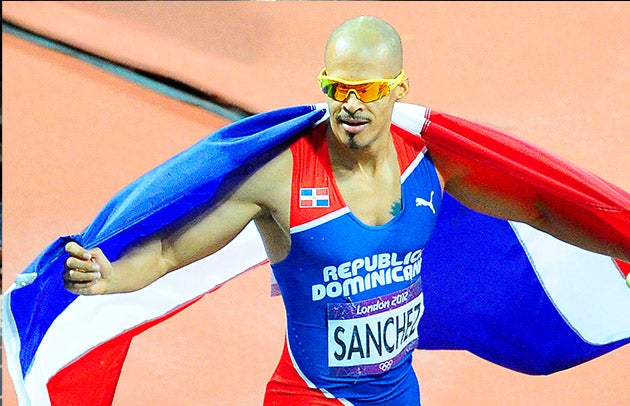
Superstitious Super Felix
Psychology alumnus Felix Sanchez ’01 might be as well-known for his flair on the track as for his incredible speed. A flashing red bracelet adorned his wrist during races in the early 2000s, a motivating souvenir from the 2000 Sydney Olympics when he failed to advance to the finals. He auctioned the bracelet off for charity after winning a gold medal in the 400-meter hurdles at the 2004 Athens games.
At the 2012 London games where he won gold again, he pulled out a photo of his grandmother from behind his racing bib after crossing the finish line. He’d promised to win a medal in her honor after she died while he competed in the 2004 Olympics.
Sanchez is a beloved hero in his home country of the Dominican Republic, where the nation’s largest sports stadium is now named after him.
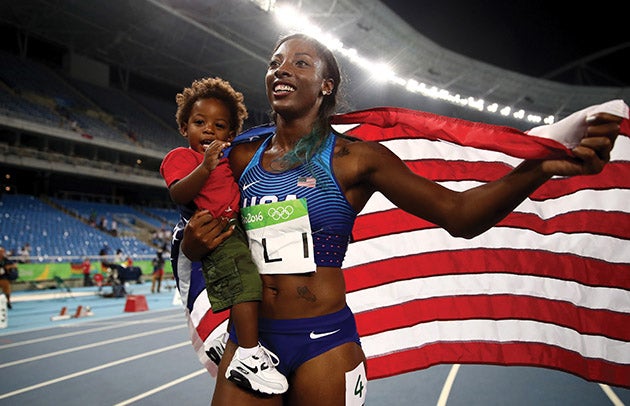
Mom power
Just a year before the 2016 Rio de Janeiro Olympics, Nia Ali ’11, a psychology alumna, gave birth to her first child. The decision to become pregnant in the prime of her track career was met with considerable skepticism by critics and consternation by her sponsor, Nike, who docked her pay for sitting out part of the season.
Fifteen months later, Nia qualified for the Olympics and took a victory lap around the track with her infant son on her shoulders. She was soon on the Olympics podium in Brazil accepting a silver medal in the 100-meter hurdles.
Ali hoped to compete in the Tokyo Olympics, but as the pandemic pushed the games farther out, she decided to focus instead on having another child with her partner, fellow track star and USD Dornsife alumnus Andre de Grasse ’16. She told Yahoo! Sports she holds no regrets and plans to continue her career.
“I want people to understand you can balance track and motherhood,” Ali says. “Having a baby doesn’t have to hold you back from achieving your goals.”
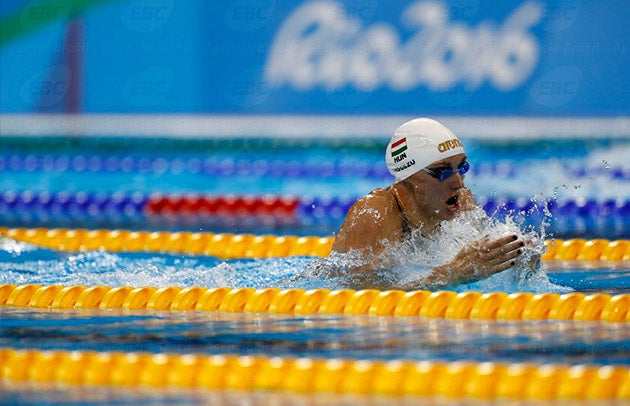
First Swimmer to Win a Million Dollars in Prizes
Hungarian swimmer Katinka Hosszu ’12, a psychology major, has been competing in the Olympics since she was 15. She’s won three Olympic gold medals and is also the first swimmer to hold world records in all five individual medley events at the same time. She’s also the first swimmer to have won a million dollars in prize money. Forbes considers her Hungary’s most valuable athlete.